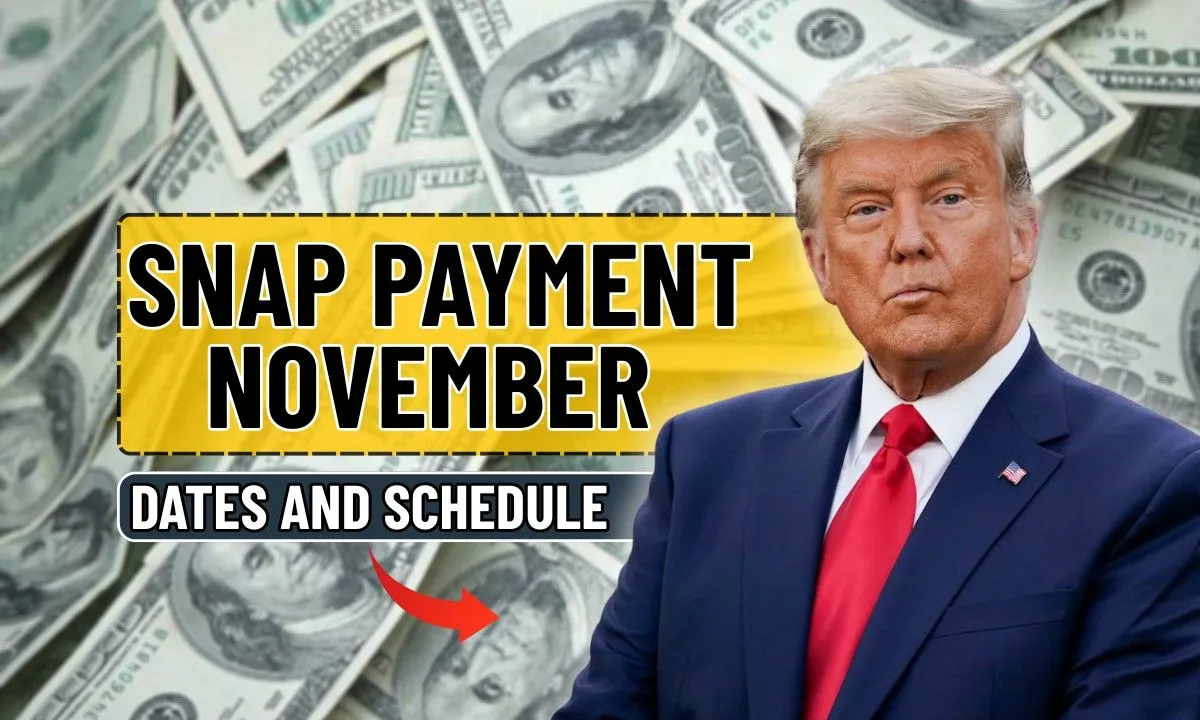For millions of American households, the start of November signals something vital that familiar SNAP deposit hitting their EBT cards. The Supplemental Nutrition Assistance Program (SNAP) continues to be one of the nation’s most important anti-hunger lifelines, helping over 42 million people afford groceries and essentials each month. As food prices remain stubbornly high, these monthly payments have become more than just financial aid they represent stability, security, and a much-needed cushion for struggling families.
However, it’s important to remember that SNAP doesn’t operate like a traditional paycheck system. There’s no universal payment date for everyone. Each state runs its own schedule, distributing funds across different days, usually between the 1st and the 20th of every month. That means while some recipients in California or New York might have already received their deposits, others in Texas or Florida could still be waiting.
Here’s a clear view of November 2025’s estimated SNAP payment dates across key states:
| State | Deposit Schedule (Approx.) | Distribution Basis |
|---|---|---|
| California | 1st-10th | Last digit of case number |
| Texas | 1st-15th | Last two digits of EDG number |
| Florida | 1st-28th | 9th and 8th digits of case number |
| New York | 1st-9th | Varies by county |
| Illinois | 1st-20th | Case number or SSN |
| Georgia | 5th-23rd | Last two digits of ID number |
These dates are general guidelines and may vary slightly depending on weekends, holidays, or state-level system updates. To double-check your exact payment date or report a delay, the USDA SNAP State Directory is the most reliable official source.
New Federal Rule, OBBBA Tightens Who Qualifies for SNAP
While most families are still receiving their benefits as usual this month, a significant policy change is quietly reshaping the program behind the scenes. Starting November 2025, a new federal rule under the One Big Beautiful Bill Act (OBBBA) has officially taken effect. This law modifies long-standing eligibility standards particularly the rules affecting adults without dependents and could change how many Americans qualify for food assistance in the months ahead.

Under the previous guidelines, Able-Bodied Adults Without Dependents (ABAWDs) adults aged 18 to 64 who are physically able to work and don’t have children could only receive SNAP benefits for three months within a three-year period, unless they worked, volunteered, or attended job training for at least 80 hours per month. The OBBBA keeps that structure but removes many of the previous exemptions. Veterans, older adults nearing retirement age, and even some unhoused individuals who were once exempt now have to prove consistent work or training participation to continue receiving SNAP.
This adjustment, according to the USDA’s ABAWD Policy Update, is part of a broader effort to “modernize work-linked benefits” and ensure uniform enforcement across all states. Critics, however, argue that it’s an unnecessary tightening at a time when wages are stagnant and job availability in certain regions remains limited.
Who Still Qualifies for an Exemption Under the New Rule
Although the OBBBA expands work requirements, not everyone will be affected by them. The USDA maintains a list of categories that remain exempt from the 80-hour monthly rule, though documentation is now more crucial than ever.
People with verified physical or mental disabilities, pregnant individuals, and those caring for children or incapacitated family members will still be exempt. However, exemptions are no longer automatic. Every recipient must submit updated verification to their state SNAP office either online, by mail, or in person before their renewal deadline. Even a small oversight, like missing paperwork or outdated medical certification, can temporarily cut off benefits.
This has led many advocacy groups to warn that paperwork errors might hit vulnerable populations hardest, especially older adults or those without stable internet access. States have been urged to increase staffing and simplify online verification to avoid widespread disruptions this winter.
Why the OBBBA SNAP Rule Is Stirring Debate Nationwide
The new law has become a lightning rod for controversy. Supporters argue that stricter eligibility helps maintain program integrity and ensures that benefits go to those most in need. They see it as an opportunity to encourage economic independence through work and training.
Opponents, on the other hand, warn that the policy risks deepening hunger and hardship, especially in communities already facing high unemployment or underemployment. “SNAP isn’t a work program it’s a hunger prevention tool,” said Kelly Rowe, policy director at a New York anti-hunger coalition. “These changes might look good on paper, but in practice, they’ll leave thousands without food on their tables.”
Even within the USDA, there’s acknowledgment that implementing these changes could strain local agencies. Many states are already overwhelmed by large caseloads and staffing shortages left over from the pandemic era. Now, they must handle added responsibilities like tracking monthly work hours and verifying exemptions a process that could cause payment delays and processing backlogs in some areas.
What SNAP Recipients Should Do Now
The most important advice from experts is simple, stay informed and proactive. Whether you’re an existing recipient or applying for the first time, understanding your classification and documenting your eligibility early can prevent interruptions.
You should read all letters, texts, or emails from your state SNAP office carefully many include vital information about changes, deadlines, or renewal requirements. If you are working, volunteering, or enrolled in job training, keep records of your hours each month. And if you believe you qualify for an exemption, reach out to your state office immediately to confirm what proof is required.
If your benefits are unexpectedly reduced or stopped, you have the right to appeal the decision through a fair hearing, which is typically managed by your state’s Office of Administrative Hearings. Most appeals can be initiated online or over the phone, and if you win your appeal, your benefits can be restored retroactively.



